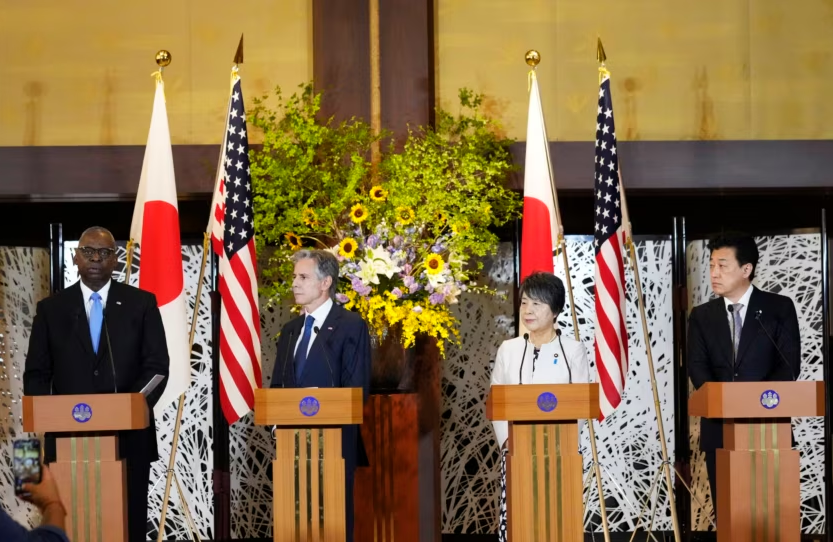
Key Points:
- The U.S. is upgrading its military command in Japan to strengthen coordination with its ally’s forces.
- The upgrade will establish a joint force headquarters with expanded missions and operational responsibilities, reflecting a commitment to closer military collaboration.
- The U.S. and Japan are also discussing “extended deterrence” and working to strengthen trilateral cooperation with South Korea.
US Upgrades Military Command in Japan, Citing China as “Greatest Strategic Challenge”
In a move signaling heightened security concerns in the region, the United States has announced plans to significantly upgrade its military command in Japan, deepening coordination with its ally’s forces. The announcement, made following security talks in Tokyo between U.S. and Japanese officials, explicitly names China as the “greatest strategic challenge” facing the Indo-Pacific region.
A New Joint Force Headquarters
The upgrade, described as the most significant change to U.S. Forces Japan since its creation, will establish a joint force headquarters with expanded missions and operational responsibilities. This new command structure, to be implemented alongside Japan’s plans for a joint command by March 2025, reflects the growing desire for closer military collaboration between the two nations.
Addressing Evolving Security Threats
The announcement comes during heightened concerns over China’s growing military presence and assertive actions in the South and East China Seas. The U.S. and Japan have expressed concerns over Beijing’s “provocative” behavior, including joint military exercises with Russia and the rapid expansion of its nuclear weapons arsenal.
Extended Deterrence and Nuclear Concerns
The talks in Tokyo also addressed “extended deterrence,” a term signifying the U.S. commitment to use its nuclear forces to deter attacks on its allies. This sensitive subject, particularly in Japan, which has historically advocated for non-proliferation, was discussed in the context of reinforcing regional stability and deterring conflict.
Amid growing nuclear threats, particularly from North Korea, Japan has expressed its need for strengthened extended deterrence. The discussions surrounding this issue are seen as a critical step in ensuring the safety and security of the region.
Strengthening Trilateral Cooperation
The U.S. has also been pushing for deeper cooperation between Japan and South Korea, whose relations have been strained for decades. In a significant development, the U.S., Japan, and South Korea signed an agreement to “institutionalize” trilateral cooperation through real-time sharing of North Korean missile warning data and joint military exercises.
This increased cooperation is seen as a strategic response to the growing threat posed by North Korea, which has repeatedly tested ballistic missiles and continues to pursue its nuclear weapons program.
Boosting Defense Industry Collaboration
In addition to bolstering military cooperation, the U.S. is also seeking to tap into Japan’s defense industry to alleviate pressure on American weapons manufacturers, which are facing increased demand due to conflicts in Ukraine and the Middle East.
The two countries are exploring various collaborative projects, including co-production efforts for missiles and strengthening supply chains. However, a flagship project aimed at increasing the production of Patriot air defense missiles in Japan faces delays due to component shortages.
A Shift in the Indo-Pacific
The announcement of the upgraded military command in Japan is the latest in a series of moves by the Biden administration to counter China’s growing influence in the Indo-Pacific region. The U.S. has been vocal about maintaining a “free and open” Indo-Pacific, working closely with allies like Japan to counter Chinese assertiveness.
The deepening military collaboration between the U.S. and Japan and the strengthened trilateral cooperation with South Korea signals a significant shift in the regional security landscape. This development will likely have far-reaching implications for the balance of power in the Indo-Pacific region.
